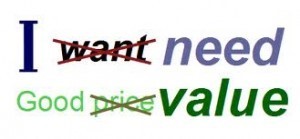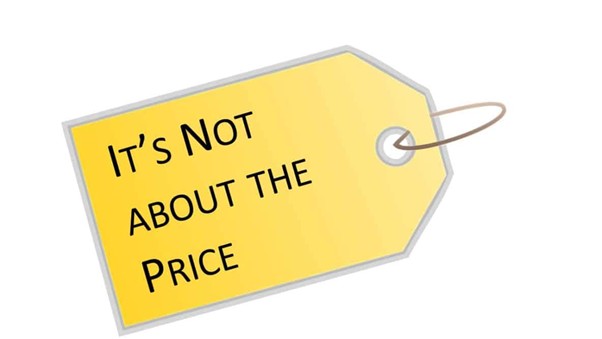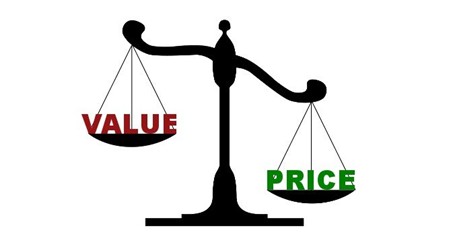One of the most common traps businesses fall into is competing on price. It’s tempting—after all, if you offer the lowest price, surely customers will choose you, right? Not always. In fact, competing on price alone can lead to razor-thin margins, endless discounting, and a race to the bottom that no one really wins.
The truth is, successful salespeople and businesses know that customers don’t buy just on price—they buy on value. When you can clearly show the unique benefits and outcomes your product or service delivers, you create a powerful reason for customers to choose you, even if your price is higher than the competition.
So, how do you shift the conversation away from “how much does it cost?” to “how much is it worth?” Let’s dive in.
Why Selling on Price Doesn’t Work Long-Term
When you rely on price as your main selling point, you run into three major problems:
No Loyalty – Customers who choose you only because you’re the cheapest will leave as soon as someone else undercuts you.
Lower Margins – Constant discounting eats away at profit, leaving little room to grow or invest back into your business.
Devalued Offering – When you focus on being cheap, customers may assume your product or service is lower quality too.
That’s why shifting the focus to value is key. Selling value means highlighting the unique advantages, long-term benefits, and real impact your solution brings to the customer.

Understand What Value Means to Your Customer
Value isn’t the same for everyone. For one client, value might mean saving time. For another, it could mean reducing risk, improving efficiency, or delivering peace of mind. To sell value effectively, you first need to understand what matters most to that specific customer.
Start by asking good questions:
• What challenges are you currently facing?
• What would solving this problem mean for your business?
• How do you measure success in this area?
By digging into their answers, you can uncover the outcomes they care about—and position your offering as the best way to achieve those outcomes.
Shift the Conversation from Features to Benefits
Customers don’t buy features; they buy what those features do for them. Let’s say you sell accounting software. Instead of talking about “cloud-based reporting” or “automated reconciliations,” frame it in terms of benefits:
“Our software gives you real-time insights so you can make faster business decisions.”
“Automation frees up hours each week so your team can focus on growth, not paperwork.”
The more you link your product’s features to meaningful customer outcomes, the more valuable it becomes in their eyes.
Use Stories and Examples
One of the best ways to demonstrate value is through stories. Share case studies, customer testimonials, or real-life examples of how others have benefited from your product or service.
For instance:
“Another client of ours in your industry was struggling with [problem]. After implementing our solution, they reduced [issue] by 40% in just three months.”
Stories make the value real, relatable, and memorable.
Quantify the Value Where Possible
Numbers speak louder than words. If you can put a dollar figure or measurable outcome to the benefits, do it. For example:
“Our service saves businesses an average of $20,000 a year in overhead costs.”
“Clients typically see a 30% increase in efficiency within the first six months.”
When you can show that your solution pays for itself or delivers a clear return on investment, the focus shifts completely away from price and onto results.
Build Confidence Through Trust
Value is also about trust. Customers need to believe not just in your product, but in you. Take time to build rapport, listen carefully, and show genuine interest in helping them succeed. People are far more likely to invest in a higher-priced solution when they feel they’re working with someone who has their best interests at heart.

At the end of the day, selling value over price is about mindset. Instead of thinking, “How do I convince them to pay this much?” shift to, “How do I show them this is worth it?” When you focus on outcomes, benefits, and long-term results, customers stop comparing you to the cheapest option and start seeing you as the smartest choice.
Want to equip your team with the skills to sell on value, not price?
Contact Business Coaches Sydney today to learn how our tailored Sales Training programs can help your small business increase sales, boost confidence, and win more loyal customers.
Call 1300 833 574 or Email info@businesscoachessydney.com.au
Author – Garret Norris – https://www.linkedin.com/in/garretnorris/
Latest posts by Sienna Anderson (see all)
- The Cost of Skipping Leadership Training in Growing Sales Teams - February 9, 2026
- Why Sales Training Is a Smart Investment for Small Businesses - February 3, 2026
- Why More Small Businesses Are Turning to Business Coaching in 2026 - January 28, 2026
